MercoPress. South Atlantic News Agency
Stories for 2009
-
Tuesday, November 24th 2009 - 13:11 UTC
Baroness Thatcher returns to Downing Street
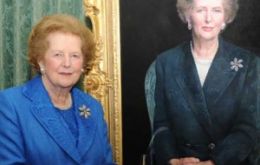
Former British Prime Minister Margaret Thatcher moved back into Downing Street, in the shape of a portrait by royal artist Richard Stone. Nicholas Glass reports. The unveiling had been delayed several times due to the ailing health of Baroness Thatcher, 84, who attended Monday the private reception.
-
Tuesday, November 24th 2009 - 13:06 UTC
Capital inflows in Brazil cause unease; G20 considers regulations
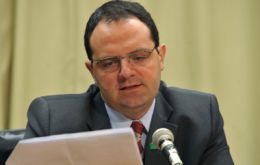
Brazil does not rule out new steps to slow gains in its currency, the Real, even as the government evaluates the impact of a recently imposed tax on capital inflows, Secretary of Economic Policy Nelson Barbosa said in an interview on Monday.
-
Tuesday, November 24th 2009 - 13:03 UTC
Family of de Menezes reaches compensation agreement with London police
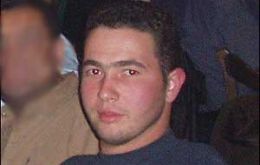
The family of Brazilian citizen Jean Charles de Menezes has agreed a compensation deal with the London Metropolitan Police. Relatives of the Brazilian have been locked in an often acrimonious legal battle with the force since he was shot dead at Stockwell Tube station on July 22, 2005.
-
Tuesday, November 24th 2009 - 12:59 UTC
Ford plans its largest ever investment in Brazil: 2.3 billion USD

Ford Motor Co. announced it will spend 4 billion Reis (2.3 billion US dollars) to expand in the growing Brazilian market, the largest investment it has made in the country.
-
Tuesday, November 24th 2009 - 12:57 UTC
Boeing 747 flies an engine with 50% bio-kerosene mix

A Boeing 747, one of four engines powered by a 50% bio-kerosene mix, circled the Netherlands for an hour on Monday for what airline KLM called the world's first passenger flight using bio-fuel.
-
Tuesday, November 24th 2009 - 12:45 UTC
Deep sea abyss swamped with diversity of life and new species

From a translucent giant octopus to a fish bearing barbed fangs, a team of international scientists say they have discovered hundreds of new species living in total darkness at least 5km beneath the surface of the world's oceans.
-
Tuesday, November 24th 2009 - 08:39 UTC
Argentine officials admit “money messenger” visited Government House
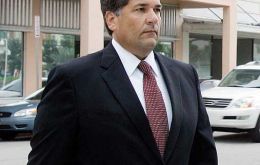
Argentine Cabinet Chief Aníbal Fernández admitted on Monday that the video footage showing the Venezuelan-American businessman Guido Antonini Wilson at Casa Rosada, the seat of the Executive Office, in 2007 is not faked.
-
Tuesday, November 24th 2009 - 07:49 UTC
Lula da Silva anticipated his Uruguayan election vote: incumbent Mujica
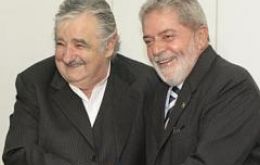
A leading figure from the ruling Workers Party of Brazil visited this weekend Uruguayan presidential candidate Jose “Pepe” Mujica with a message from President Lula da Silva.
-
Tuesday, November 24th 2009 - 07:42 UTC
Bolivian Jews concerned with Iranian president’s visit
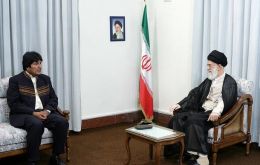
The Bolivian Jewish community has expressed concern over the coming visit this Tuesday of Iranian president Mahmoud Ahmadineyad who is scheduled to meet with his Bolivian peer Evo Morales, as part of a several days visit to South America and Africa.
-
Tuesday, November 24th 2009 - 03:58 UTC
Blasting report on human rights: “New Castro, Same Cuba”
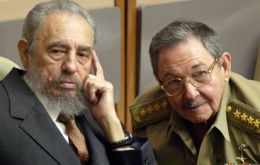
Cuban president Raúl Castro's government has locked up scores of people for exercising their fundamental freedoms and allowed scores more political prisoners, arrested during Fidel Castro's rule, to languish in detention, Human Rights Watch says in a report released this week. Rather than dismantle Cuba's repressive machinery, Raúl Castro has kept it firmly in place and fully active, the report says.
